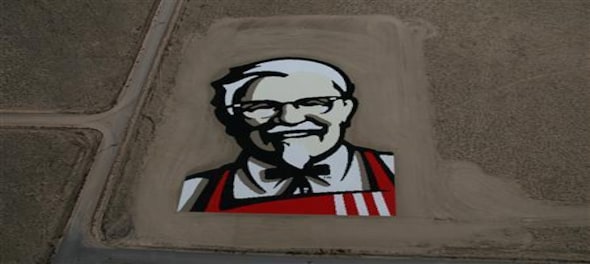
Globally, KFC is the world’s second largest chain of restaurants after McDonald’s. In India, the chain has had a more halting journey with several hitches initially before it hit upon the winning formula.
Controversy and protests surrounded its launch in the country in 1995, with politicians opposed to liberalisation and farmer groups worried about its impact on their livelihoods leading the charge.
As the first foreign fast food restaurant chain to enter India following the reforms of 1991, it was expected to capitalise on its early start with plans to set up 30 outlets across the country in the first phase.
The first of these was opened in Bangalore on 1st June, 1995. Initial expectations were that customers would flock to the outlet both for the novelty of the experience as well as its famous fried chicken servings. Sadly these expectations were belied, and its opening was met with howls of protests. The outlet on the city’s buzzing Brigade Road was repeatedly ransacked on grounds that KFC was using higher than permitted levels of mono-sodium glutamate (MSG), a flavoring agent. It was also accused of cooking and frying the food in pork fat, an absolute no-no for most Indians.
The movement against it was led by M.D. Nanjundaswamy of the Karnataka Rajya Raitha Sangha (KRSS). Earlier he had campaigned against another MNC, Cargill Seeds, with his followers ransacking the Cargill office, also in Bangalore, in 1993. Nanjundaswamy claimed that KFC was using chicken which had been chemically-fattened by being fed on arsenic, sulfa drugs and other antibiotics.
Wild as the charge was, it received support from animal-rights activists and environmentalists like Maneka Gandhi and Vandana Shiva who were worried about the impact on biostock and food security in India.
Sensing the public mood, in September that same year, the city corporation asked KFC to shut down its restaurant after analysing samples of its food and surmising that it had not “declared the presence of monosodium glutamate in capital letters as a warning clause”.
The corporation also claimed that the American company didn’t “have a proper warranty clause from whom the monosodium glutamate has been brought”. KFC promptly went to the high court which reversed the order of the city government and allowed it to carry on business. Its contention was that it used the same level of MSG in its chicken worldwide, and there was no question of it being higher in Bangalore. Things however remained ugly and a police van was permanently parked outside the outlet in apprehension of further attacks.
Months later, KFC, which at this time was owned by PepsiCo, opened its second outlet in Delhi but met with failure there too. The municipal authorities in the capital canceled its license citing an inspection during which officials found two flies inside an ''improper" garbage disposal.
With meager revenues from the two outlets, KFC decided to shut down the India business. It returned in 1999, with an outlet in Bangalore but it took another five years before it expanded its operations and set up another outlet.
Post 2005 though, the restaurant chain expanded rapidly in the country.
—Sundeep Khanna is a former editor and the co-author of the recently released Azim Premji: The Man Beyond the Billions. Views are personal
First Published: Apr 25, 2022 11:49 AM IST
Check out our in-depth Market Coverage, Business News & get real-time Stock Market Updates on CNBC-TV18. Also, Watch our channels CNBC-TV18, CNBC Awaaz and CNBC Bajar Live on-the-go!


'Borrowed' leaders: Congress hits out at AAP for not fielding their own candidates in Punjab
Apr 28, 2024 9:53 PM
EC asks AAP to modify election campaign song and Kejriwal's party is miffed
Apr 28, 2024 9:25 PM

